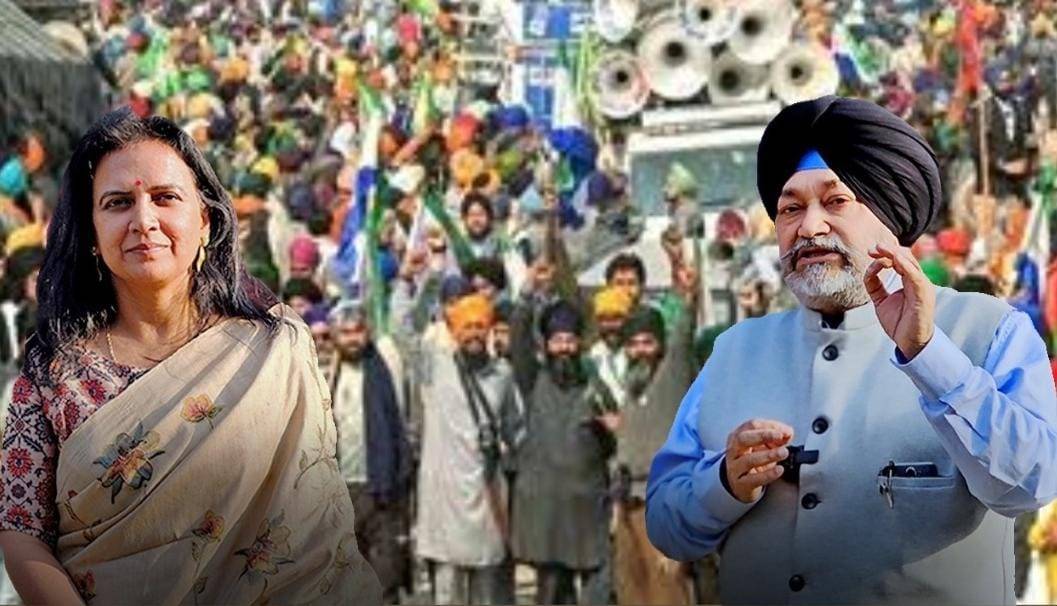AI Generated Summary
- This time, my editorial’s scope is to dwell on the issue of reportage of the current farmers’ ‘Dilli Chalo’ protest march by the Delhi brand of journalists working with what is popularly called the national media.
- While appreciating Nidhi for the podcast, I asked how many journalists there were on how many national media platforms and how frequently the farmers’ issue was being presented with required journalistic neutrality, thereby implying in light of provisions in the Constitution of India.
- But at the same time, one must understand every individual is different from the other, and the same is true for journalists who have to adapt and adjust in media organisations owned and governed by non-journalists.
This time, my editorial’s scope is to dwell on the issue of reportage of the current farmers’ ‘Dilli Chalo’ protest march by the Delhi brand of journalists working with what is popularly called the national media. The attempt comes through an interview with Times Group’s Delhi-based journalist, Ms Nidhi Sharma, designated Deputy Senior Editor of the Economic Times, the pink business newspaper.
The Chandigarh Press Club invited some Delhi journalists to participate in the first three-day, ‘Journalists’ Literature Festival’, to discuss issues troubling society in general and journalists in particular.
My lead questions to the journalist-cum-author Ms Sharma were: “Why has the Delhi media earned the nomenclature of ‘godi media’ when it comes especially to coverage of farmers’ agitation? Secondly, why are all agitators in Punjab, mainly the Sikhs, considered to be separatists?”
Nidhi explained: “It is unfortunate that such an impression existed in Punjab. I have visited Khanauri, where maximum action took place…I have written about it and also released a podcast on the Times platform; you may see that we are also highlighting the farmers’ issue…on one channel, someone was saying that the farmers should be allowed to come to the national capital…it is their democratic right…not that the Delhi media is silent…we are watchdogs of society. Everyone is performing that task.”
While appreciating Nidhi for the podcast, I asked how many journalists there were on how many national media platforms and how frequently the farmers’ issue was being presented with required journalistic neutrality, thereby implying in light of provisions in the Constitution of India.
The Deputy Senior Editor believed that all were working for a better India, but the problem was that much mistrust had crept in between the farmers and the government, which needs to be corrected. All should know which demands are justifiable and how much could be acceded. The exchange of Rs 10 lakh crore talk is also doing the rounds. The timing of the ‘Dilli Chalo’ programme was also important, she said.
The 15.34-minute exploratory talk with a journalist representing the national media revealed that it may not be fair to paint the entire Delhi-based journalists’ community with a different brush. There are voices – however feeble and few – somewhat raising and discussing the genuine problems of farmers. But at the same time, one must understand every individual is different from the other, and the same is true for journalists who have to adapt and adjust in media organisations owned and governed by non-journalists.
Then there is the play of stakeholders’ interests, political and economic, beyond the control of the employee-journalists. It is another matter that some journalists acquiesce to the interests of the powers that be for faster career growth.
To conclude, a vital section of Delhi-based journalists continues to be just, prudent and reasonable in their reportage of men and matters for a better, united India.
Ms Nidhi Sharma in her newly published book, ‘She, The Leader”, has profiled 17 women of substance.




